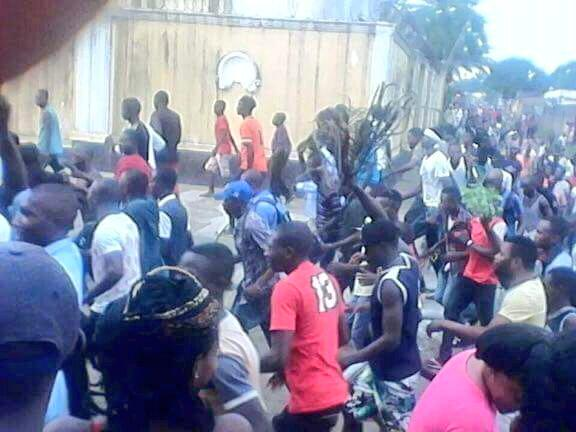MONUSCO’s military mandate: A red herring?
Much of the debate around the recent mandate renewal of the UN peacekeeping mission was centered on military action. News reports focused… Read More
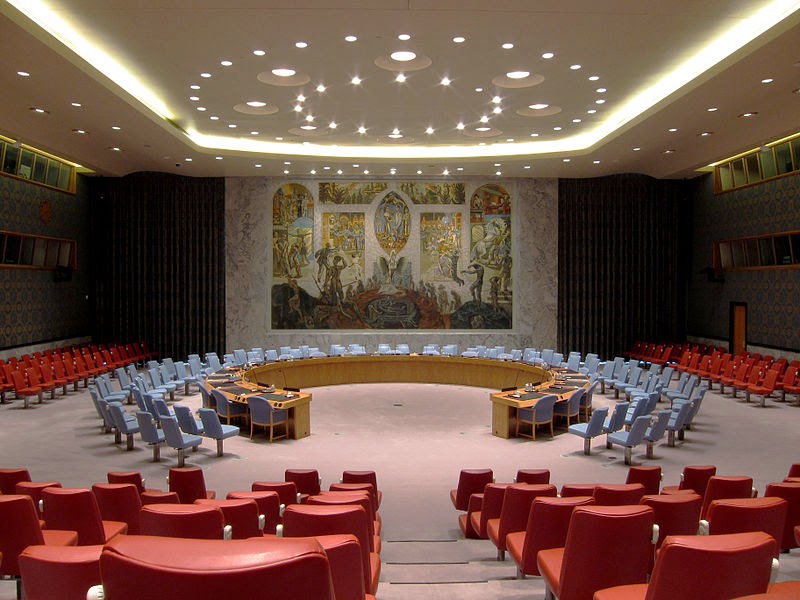
Much of the debate around the recent mandate renewal of the UN peacekeeping mission was centered on military action. News reports focused… Read More

This is the first in a series of caricatures the Congolese political caricaturist Kash (aka Kashauri Thembo) is providing exclusively to Congo Siasa. Read More
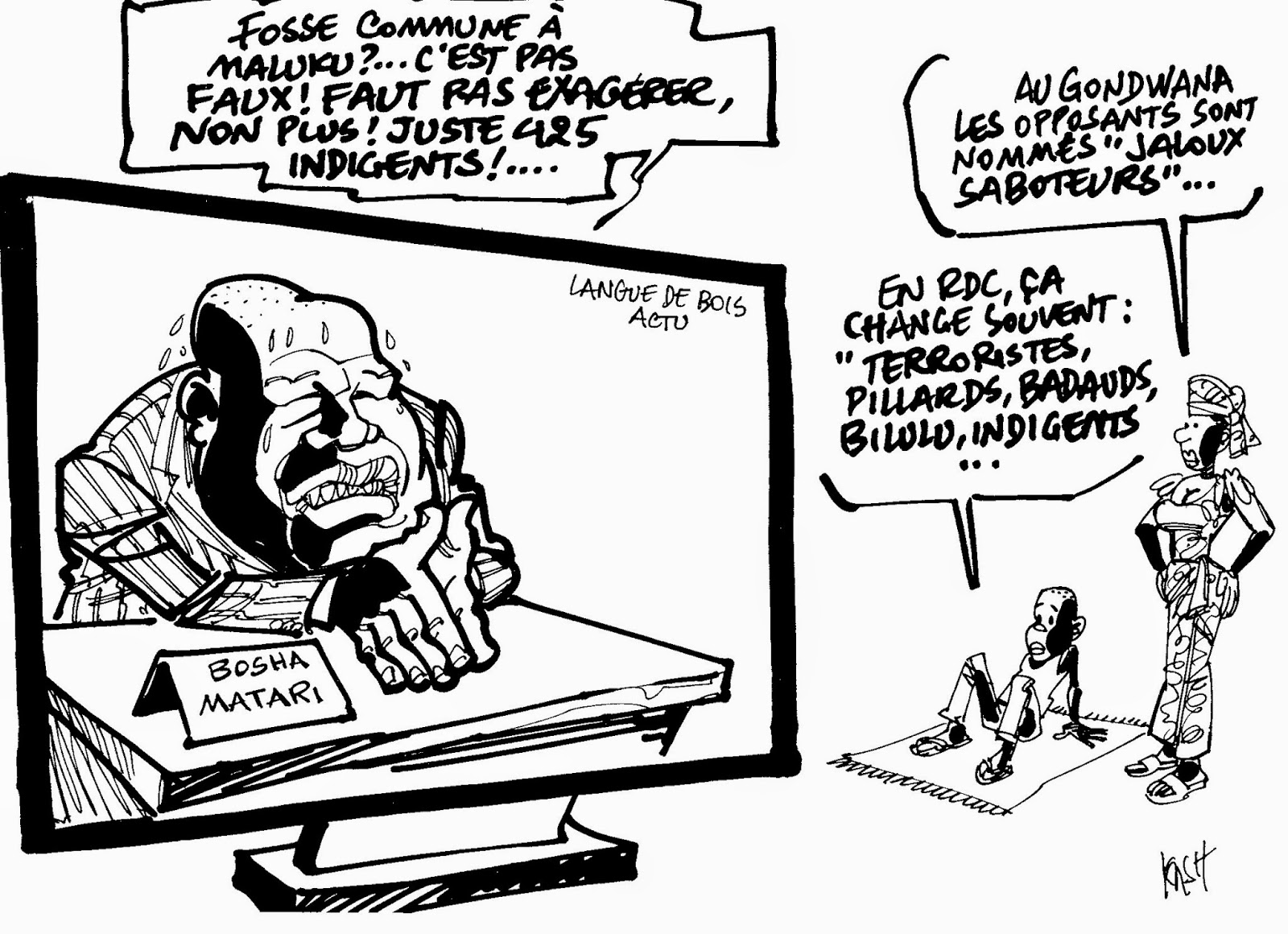
For this week's podcast, I spoke with Ida Sawyer, the senior researcher for Human Rights Watch on the Congo. We discussed the recent arrests of civil society and opposition activists to the backdrop of an increasingly acrimonious election season. Read More
For those of us who think numbers and statistics can give a useful––albeit partial––insight into political and social dynamics, the Congo frustrates. Read More
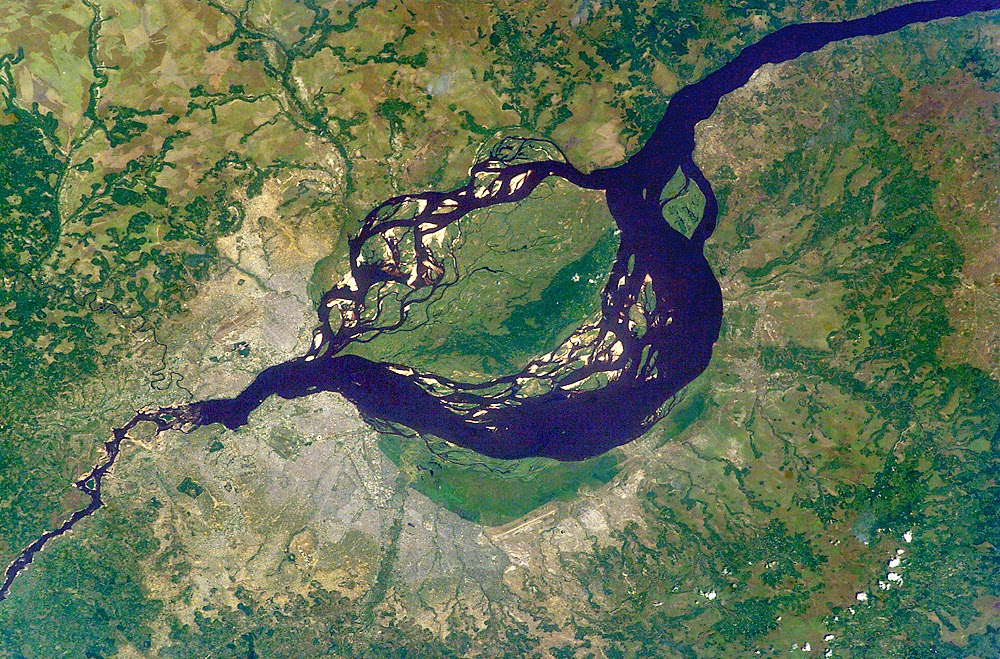
Jean Omasombo est chercheur au Musée Royal de l'Afrique Centrale en Belgique et directeur du Centre d'Études Politiques à l'Université de Kinshasa. Dans cette émission, nous parlons de la loi sur la création des nouvelles provinces, promulguée le 2 mars 2015. Pourquoi ce découpage a pris autant de temps? Est-ce que c'est une bonne idée de décentraliser le pouvoir sans avoir consolider des institutions fortes? Et quelle analyse faire du contexte politique––la bataille sur la succession du Président Kabila, et les divisions au sein de la Majorité Présidentielle––dans lequel cette décision a été prise? Read More
The battle over Kabila’s succession has begun, and is certain to be the leitmotif of Congolese politics over the coming two years. To a certain extent––to a large extent––the recent controversies over the electoral law and calendar, and the arrest of opposition members and civil society activists (a whole slew were detained on Sunday), are all part of this battle. Read More
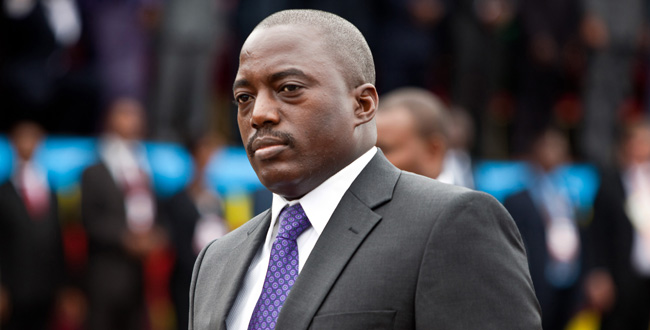
I was on Radio Okapi yesterday, discussing the failures and successes of the Peace, Security, and Cooperation Framework, which turned two… Read More
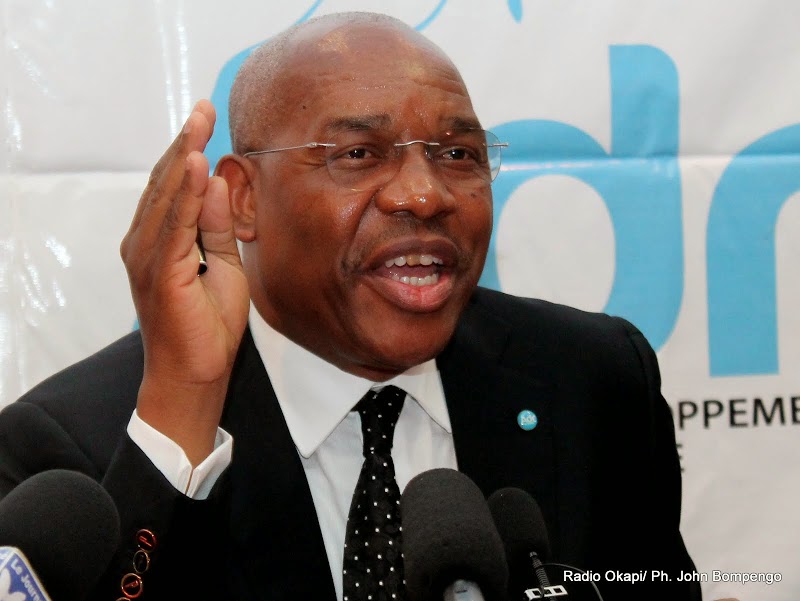
This is the second in our podcast series and is focused on the recent operations against the FDLR. Who are the FDLR?… Read More
Interested in getting an intensive immersion into the politics and history of the Great Lakes region of Africa? The Rift Valley Institute will be holding its annual Great Lakes course in Kenya this year, between the 27 June and 3 July. You can apply here. The Great Lakes Course covers the Democratic Republic of the Congo (DRC), Rwanda and Burundi. The state and its institutions will be cross-cutting themes this year. In the DRC, the Course will look into the debates around the electoral process and the ongoing violence in the Kivus. For Burundi, the shrinking political space ahead of the 2015 elections and its impact on democratic processes will be examined. For Rwanda, the course will focus on the renewed stifling of opposition voices and the role of the state in a post-genocide context. The course is in English and French with simultaneous translation. Read More
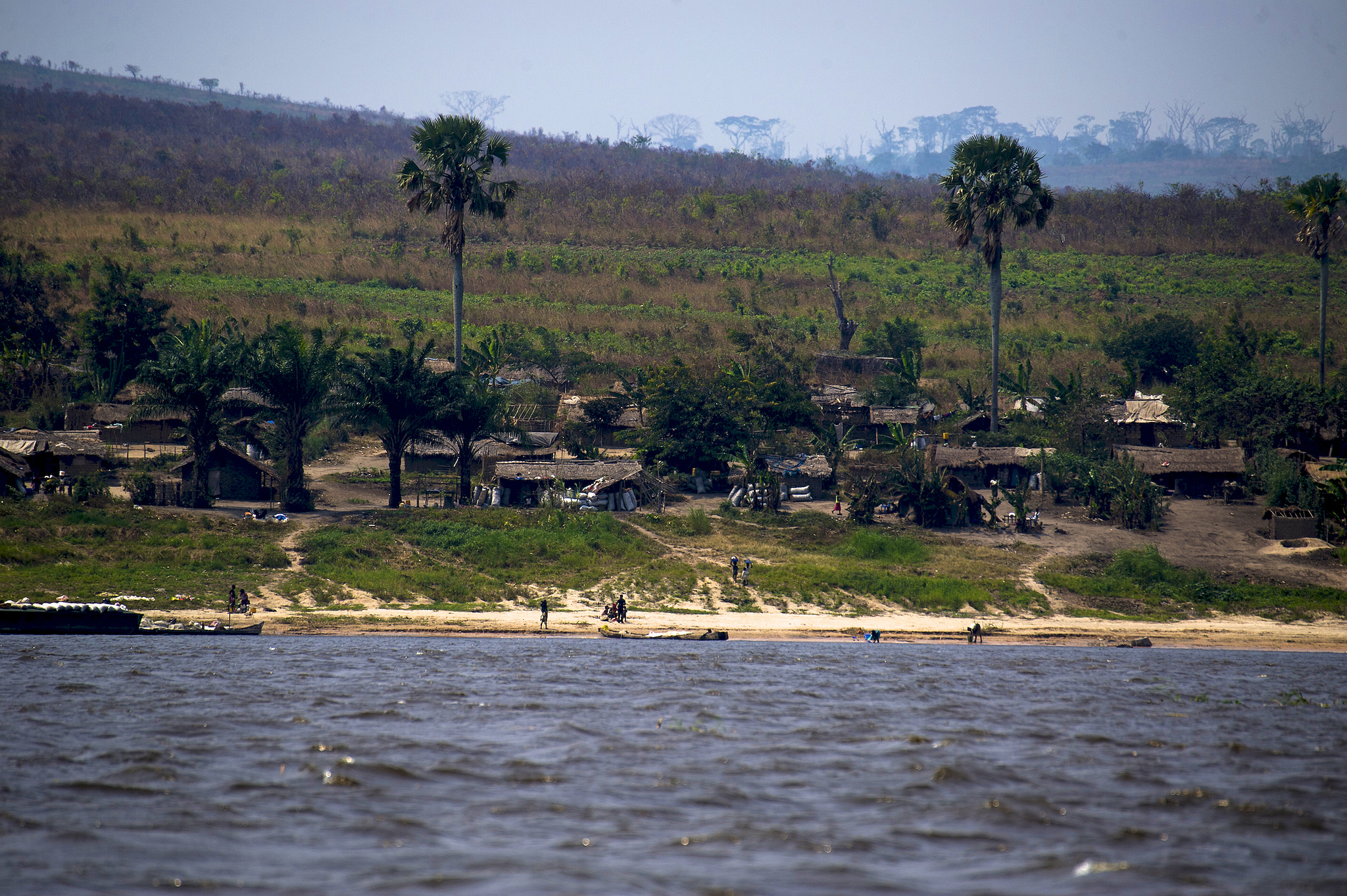
Two weeks ago, the national elections commission published its election calendar. This is the outline: 25 October 2015: Provincial, municipal, urban, and local elections;10 December 2015: Results of those elections announced;17 January 2016: Election of senators by provincial assemblies;31 January 2016: Election of governors and vice-governors by provincial assemblies;27 November 2016: Presidential and national parliamentary elections;7 December 2016: Provisional presidential results announced; total cost: $ 1.145 billion. Read More
Jerome Bonso (Photo: John Bompengo, Radio Okapi) Jerome Bonso est parmi les activistes congolais qui suivent le processus électoral en RDC de près. Il est le coordonnateur d’Agir pour les élections transparentes et apaisées (AETA) et président du la Ligue Nationale pour les Elections Libres et Transparentes (LINELIT) Cette transcription a été légèrement raccourcie de l’original. Read More
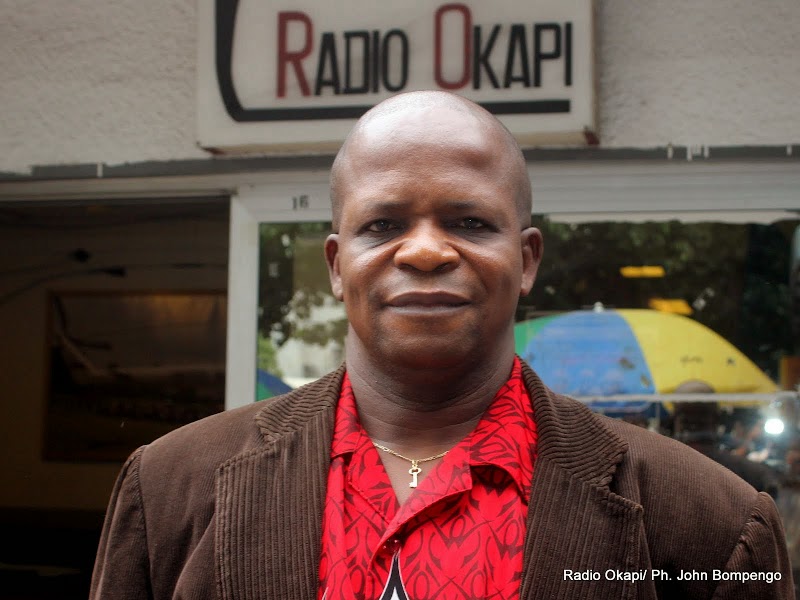
The following is an article written for World Politics Review. Anti-government protestors burn tires as they protest a new law that could delay the scheduled election to be held in 2016, Kinshasa, Democratic Republic of Congo, Jan. 20, 2015 (AP photo by John Bompengo). Flying into Kinshasa, the capital of the Democratic Republic of Congo, in the early days of 2015, foreign diplomats could be excused for being disoriented. The news in the international press was focused on an impending offensive against Rwandan rebels in the east of the country, an area to which the United Nations peacekeeping mission––the largest in the world––had just relocated most of its troops and staff. Read More
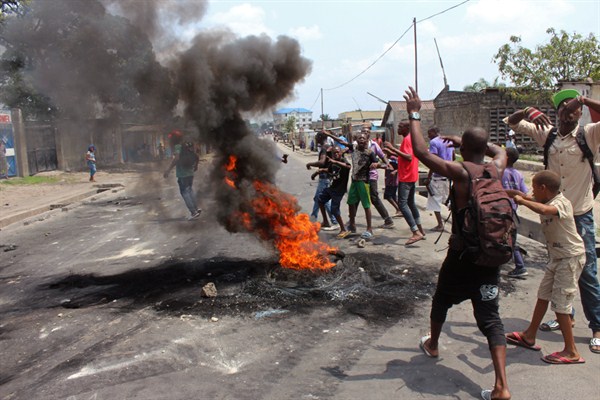
Headlines from Kinshasa have over the past weeks have spoken about a controversial electoral law and a brutal crackdown on demonstrations. The… Read More
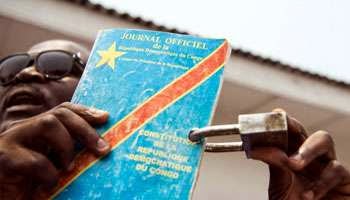
The past three days has seen the worst protests in Kinshasa since the controversial elections three years ago. The violence was sparked by a proposed electoral law that links the electoral process to the census, which could delay national elections by several years and illegally prolong President Kabila's stay in power (he has to step down in 2016). Read More
